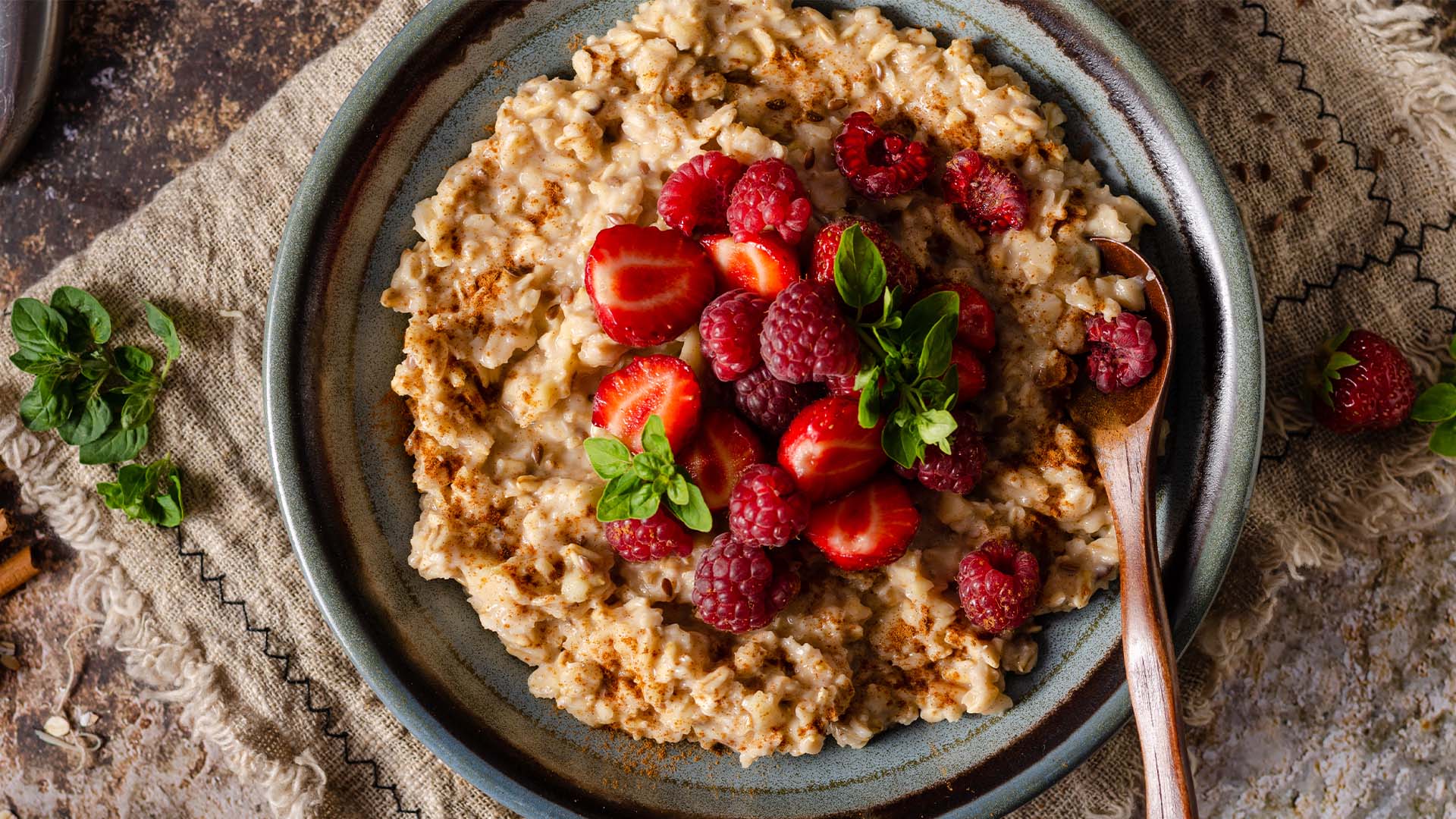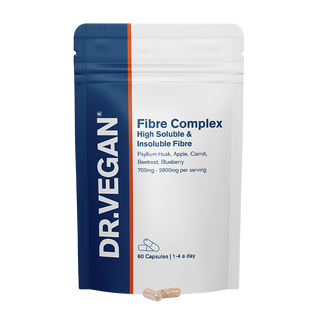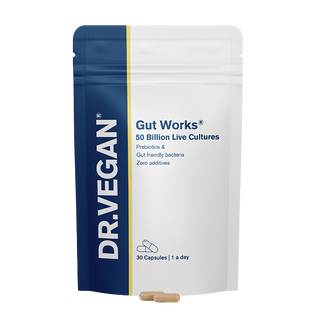Difference between soluble & insoluble fibre

Fibre is an essential component of a healthy diet, playing a crucial role in maintaining digestive health and overall wellbeing. Yet deficiency in fibre, also known as ‘a fibre gap’, is very common. It is estimated that 90% of people do not get enough fibre in their diet and women especially need to increase their fibre intake.
Fibre comes in two forms: soluble and insoluble. Here, we'll explore the characteristics, benefits and sources of both types, helping you make informed decisions about your dietary choices. You may be interested in reading 'Why fibre in your diet is essential' and 'Do I need to take a fibre supplement?'.
Soluble fibre
What is soluble fibre and why do we need it?
Soluble fibre dissolves in water, forming a gel-like substance in the digestive tract. This unique quality allows it to bind with cholesterol and sugars, helping to regulate blood sugar levels and lower cholesterol levels. Soluble fibre is also known for its ability to promote a feeling of fullness, which can be beneficial for weight management.
The benefits of soluble fibre
- Heart health: Soluble fibre has been linked to a reduced risk of heart disease by lowering levels of LDL (low-density lipoprotein) cholesterol. Discover '5 Tips to improve 'healthy' cholesterol'.
- Blood sugar regulation: Soluble fibre slows down the absorption of sugar, helping to stabilise blood sugar levels and reduce the risk of type 2 diabetes.
- Weight management: The gel-like substance formed by soluble fibre can create a sense of fullness, reducing overall calorie intake and aiding in weight management.
Foods high in soluble fibre
- Oats: Are a rich source of beta-glucans, a type of soluble fibre. You may be interested in trying Chef Bettina's Chia Pot (Ve).
- Legumes: Beans, lentils and peas are excellent sources of soluble fibre. Free recipe: Black Bean and Avocado Tacos (Ve).
- Fruits: Apples, citrus fruits and berries are high in soluble fibre.
- Vegetables: Carrots, broccoli and sweet potatoes contain soluble fibre.
Insoluble fibre
What is insoluble fibre and why do we need it?
Unlike soluble fibre, insoluble fibre does not dissolve in water. Instead, it adds bulk to the stool and helps move it through the digestive system. Insoluble fibre is particularly beneficial for preventing constipation and promoting regular bowel movements. Discover 'How to get rid of constipation' and 'What does your poo say about your health?'.
The benefits of insoluble fibre
- Digestive health: Insoluble fibre adds bulk to the stool, preventing constipation and promoting regular bowel movements. Learn what your farts say about your health.
- Weight management: Similar to soluble fibre, insoluble fibre contributes to a feeling of fullness, aiding in weight management.
- Colon health: Insoluble fibre has been associated with improved colon health.
Foods high in insoluble fibre
- Whole grains: Brown rice, whole wheat and quinoa are rich in insoluble fibre.
- Nuts and seeds: Almonds, flaxseeds and sunflower seeds provide a good dose of insoluble fibre.
- Vegetables: Dark leafy greens, celery and cucumbers contain insoluble fibre.
Is it better to have more soluble or insoluble fibre?
Both soluble and insoluble fibres play essential roles in maintaining overall health and a well-balanced diet should include both types. A combination of these fibres ensures optimal digestive function, heart health and weight management. Strive for variety in your food choices to enjoy the diverse benefits each type of fibre offers.
Understanding the distinctions between soluble and insoluble fibre empowers you to make informed dietary choices. Whether you're aiming to support heart health, regulate blood sugar, or promote digestive regularity, incorporating a mix of both types of fibre is key to a well-rounded and nutritious diet.
Discover DR.VEGAN's comprehensive Fibre Complex, including five insoluble and soluble fibres for complete digestive support. Packed with a gut-loving blend of insoluble and soluble fibres, including Psyllium Husk, Apple, Carrot, Beetroot and Blueberry fibre. Fibre Complex supports your digestion, combats constipation and helps you stay regular so you can feel your best every day.
Learn the difference between prebiotics and fibre.
Discover our range of award-winning vegan supplements and probiotics.
You may also enjoy reading:
- Latest gut health customer survey: IBS causes & signs revealed
- Acid reflux? Best 3 foods to eat and avoid
- Best probiotics for IBS
- Common & unusual symptoms of IBS
- Signs of gluten intolerance
- 5 common myths of coeliac disease
- What is period poo?
Want to hear more from our nutritionists? Sign up to our email newsletter for insights and exclusive offers:



















